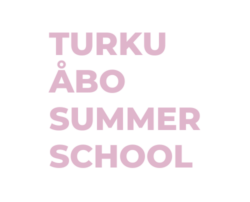Contemporary International Trade
Gain comprehensive insights into international trade law through this course that explores both WTO and EU perspectives in the post-COVID era. Learn about the fundamental principles governing global trade, analyze the complex relationship between WTO and EU frameworks, and understand how international trade has evolved in response to recent global challenges. Perfect for students interested in understanding the dynamics of contemporary international trade and its regulatory frameworks.

- Teaching period: 1 – 31 August 2025
- Contact teaching in Turku 4 – 15 August 2025
- Credits: 5 ECTS
- Course level: +2 years Bachelor's Degree studies
- Organizer: University of Turku
- Field of study: Business, Law
- Course fee: 225 €
APPLY BY 17 APRIL 2025
The course Contemporary International Trade: a WTO and EU basic perspectives in the “post-COVID Era” offers a general introduction to the World International Trade Law (WTO Law) and EU trade perspectives.
The course offers an introduction to international trade, thus, exploring the structure, principles, main WTO Agreements shaping international trade within the WTO and the challenges that emerged during the COVID Pandemic.
Analyzing non-discrimination principles embodying GATT, GATS, the TRIPS Agreements will enable students to understand the functioning and challenged of international trade in times of crisis.
The WTO has provided the framework for liberalization of trade, in this course you will learn: 1, about the interaction between the EU and WTO; and 2. the forced or challenge evolution of international trade during the pandemic.
The study of the relationship between WTO and EU will consist of the analysis of the status of the EU in the WTO, and the legal effect of WTO law in the EU.
Learning outcomes
The student will be able to
- analyze current issues for the liberalization of trade, EU, and the WTO
- critically understand the multilateral trading system
- You have a broad knowledge about international trade and the interplay across the different actors taking part in international trade
Contents
International trade system:
- What is international trade?
- WTO structure
- WTO System
- WTO- EU interphase
- Challenges emerging during the COVID pandemic
Methods
Lectures, group work and take-home exam.
Date
1 August – 30 August. Contact teaching in Turku 4 August – 15 August 2025. The start and/or finish of the course is completed online. 20 contact hours → Hybrid mode.

University of Turku
Dhanay Cadillo Chandler, PhD, Docent Intellectual Property Law
Place: Mainly in Turku, but includes also online studying.
Selection:
- minimum 2 years of completed Bachelor’s studies in any field of study.
- a motivation letter written in English explaining why the student is interested in the course, what s/he expects to get out of it and how s/he plans to use what s/he has learnt in her/his future life.
Pre-task 20-24 h, lectures and mentoring 20 h, project work in groups, class assignments and take-home exam (essay type) 85 h = 139 h
Literature:
- Craig, P. & de Búrga, G. EU Law: Text, Cases, and Materials. 5th ed. Oxford: Oxford University Press.
- Sørensen, K. E. (ed.) (2006). WTO Law from an EU Perspective. Copenhagen.
- Matsushita, M., Mavroidis, P. C. and Schönbaum, T. J. The World Trade Organization. 2nd ed. Oxford: Oxford University Press.
- Van Den Bossche, P., and Zdouc, W., The Law and Policy of the World Trade Organization: Text, Cases and Materials (3er ed. Cambridge University Press)
Additional reading materials to be available through Moodle.
- Lecture material, webpages etc.
Pre-task (reading task)
Classroom work and Take-Home exam 1-5 scale
Assessment criteria
- Pre-task: Depth of discussion.
- Classroom Group work
- Active participation in lectures and group work
- Take-Home exam: contact hours.
Max. 25 students
Teacher information

Dhanay Cadillo Chandler
Dhanay Cadillo Chandler, PhD, Docent Intellectual Property Law.
